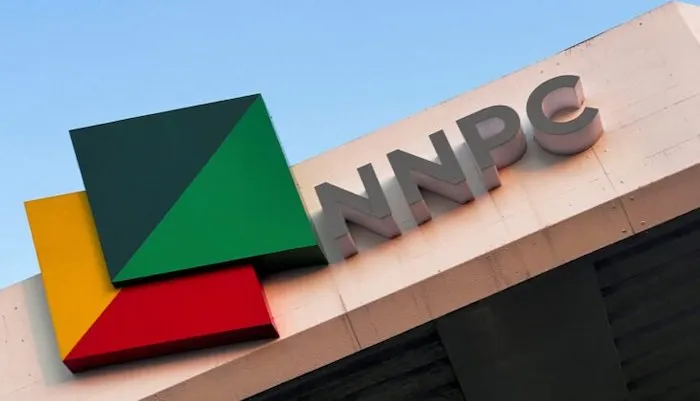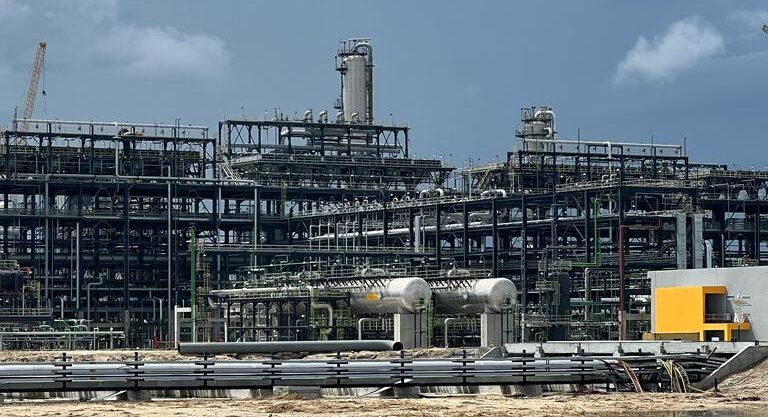President Bola Tinubu’s removal of fuel subsidy during his inaugural speech on 29 May is a steely resolve well made. But it has set the alarm bells ringing. The decision sits well with the World Bank, IMF and technocrats who had engaged in long advocacy for it; but not so for the downtrodden, who see only the painful effects that go with it. Evidently, it is a well-calculated policy that pulls Nigeria from the precipice of bankruptcy; and ends the rogue regime of subsidy corruption that has savaged the country for more than three decades.
A day after the announcement, all hell was let loose at petrol stations. The Nigerian National Petroleum Company Limited (NNPCL) rolled out a new price template for the product, which replaced the N185 per litre, for between N448 and N557 per litre now, across the 36 states of the country and the Federal Capital Territory (FCT). But the retail marketers are selling above the price range, for up to N800 per litre in some areas.

The organised labour’s swift and truculent reaction, with its threat of a nationwide strike, was not unexpected. Its grouse was the non-consultation with various stakeholders before the decision was taken and the lack of measures put in place to cushion the deleterious effects of the price spike on workers. The fact that the 2023 Appropriation Act (budget) captured fuel subsidy till the end of June, made its abrupt and unilateral removal more revolting to labour.
To be fair, the Nigerian Labour Congress (NLC) acted within its right as an organisation devoted to workers’ welfare. The truth is: it is not going to be easy economically henceforth for the average Nigerian. The new order will stoke inflation, currently at 22 per cent. The inflationary spiral is already being felt in the over 200 per cent hike in transport fares. Frenetic discussions between labour and government representatives already gathering pace, will resume on 19 June.
The agreements reached last Monday nipped in the bud the earlier planned 7th of June nationwide strike. These include the setting up of a joint committee to review proposals on wage increase; inclusion of low-income earners in the $800 million cash transfer programme; rehabilitation of the country’s ailing refineries; repair of roads, among others. The Trade Union Congress (TUC) had in its separate discussions with the government’s team, presented a N200,000 minimum wage demand to replace the current N30,000. The NLC adopted it. Finding common ground on this proposal and the consequential adjustments on general wages to be made at both federal and state levels will certainly be complicated.
What is publicly known about fuel subsidy is that it is a state-sanctioned scam, which has haemorrhaged the treasury at the expense of the provision of public infrastructure and services like roads and bridges; health, education and water for decades. Previous administrations lacked the political will to stop it and rein in the thieving cartel.
The Tinubu decision, therefore, is a welcome rupture from our horrible past. Interestingly, candidates of all the major political parties in the last presidential election – Atiku Abubakar of the Peoples Democratic Party (PDP) and Peter Obi of the Labour Party (LP), had fuel subsidy removal as one of their core campaign promises. Obi further characterised subsidy as “an organised crime.” He could not be more correct.

How the country got to this bizarre juncture is a study in national malaise. For about three decades, Nigeria has been importing petroleum products – premium motor spirit (petrol), kerosene and diesel, instead of putting its refineries in Port Harcourt, Warri and Kaduna to good use. It committed $25 billion to the turnaround maintenance of these refineries in more than two decades, without achieving any result because of corruption. This is an embarrassment for a major OPEC member country.
From a N257 billion subsidy payment in 2006, it reached N8.48 trillion in 2022, going by figures released last Thursday by the Revenue Mobilisation Allocation and Fiscal Commission (RMAFC). The agency’s chairman, Mohammed Shehu, in his endorsement of subsidy removal, stressed that the NNPCL sequestered the amount as subsidies for the year, which was yet to be reconciled by the RMAFC, Auditor-General and NNPCL. A total of N3.36 trillion was provided for subsidy in the first six months of 2023. This means that it would have bled the treasury to the tune of N6.72 trillion if the bazaar had run through the entire year.
Ensuing from the stemming of this national financial haemorrhage, youths in Cameroon engaged in the motorcycle taxi business were recently seen in a video reportedly protesting the subsidy removal by Nigeria. That’s a huge statement about the sense of entitlement of our neighbours to Nigeria’s “Father Christmas” disposition, as President Tinubu put it. It confirms what is already known – that petrol used by Nigeria’s neighbours – in Benin Republic, Chad, Niger, Cameroon; even Ghana and Togo – is largely sourced from the subsidised product, which is smuggled and sold at market prices in these locations. Four of the mentioned countries are petroleum producers themselves that refused to subsidise their own market supplies.
The Nigerian reality is that subsidy is not sustainable, with 96 per cent of the country’s revenue being used to service a debt of more than N77 trillion. Fuel subsidy technically ended 18 months ago, when the Petroleum Industry Act was enacted in 2021. That law liberalised the market for the petroleum downstream sector. But Buhari’s notorious tardiness in implementing policy decisions ensured its prolongation. With this over, the market should rule the roost by breaking the NNPCL’s monopoly of petrol importation. Besides, product availability locally should go beyond the Dangote refinery source. This would help foster competitive pricing and a truly deregulated market.

The national conversation on the subsidy scam cannot end only with its removal, and without bringing the felons involved to book. There is nothing spectral about the suspects. At least, the investigation of the 2009 to 2011 heist by a House of Representative panel unveiled 140 petrol importers, out of which 21 were asked to refund N382 billion over dubious subsidy claims, by a Federal Government committee that reviewed the report of a technical committee headed by Aigboje Aig-Imoukhuede. Nine firms shunned the summon of the Reps panel and the country irresponsibly swept the sleaze under the carpet.
Failure to rein in the culprits was a tacit approval of treasury plundering and culture of impunity, which helped the sleaze to fester for 12 more years. The 2011 subsidy scam of N2.5 trillion involved a purported 59 million litres of daily consumption, as against the actual figure of 35 million litres. The figure almost doubled to 68 million litres per day in 2022.

Nigerians ceaselessly faulted these figures, just as key actors in government did. There are no rational statistics or data that support the figures officially bandied around. With the collapse of many companies and businesses, and the cost of vehicles being astronomically high, what the NNPCL claims cannot stand the test of any scrutiny.
No country has developed by ignoring the brazen assault on its treasury such as the fuel subsidy scam has presented. The best way to mitigate the impact of its removal on Nigerians is for government to clean up the mess in the oil sector. The courage that Tinubu has displayed so far should be stretched further in the recovery of all funds looted in connection with the racketeering and other thefts in the oil sector. A clear case is the $17 billion worth of crude stolen by some oil companies between 2011 and 2014, which the immediate past Attorney-General of the Federation, Abubakar Malami, confirmed and vowed to recover, during a parliamentary inquest in 2017. The paper trails in Nigeria and offshore are there to guide action.
Truth be told, comforts expected from the planned interventions will not go far. The only magic bullet that we see is a reset of the economy for it to work for all – and improve the welfare of all Nigerians. An increase in salaries will be for workers, not for those in the 33 per cent unemployment loop; more transport buses will largely benefit urban dwellers, and not the rural populace, most of whom were the 133 million people recently identified as multi-dimensionally poor.
Kwara and Edo states recently reduced the five working days to three, to ease transport difficulties for workers. While the gesture is a therapy of sorts in the interim, it is more of an acknowledgement of rough times ahead, rather than its solution. Subsidy removal is a national belt-tightening measure with serious socio-economic consequences for most workers and those living below the poverty line.
PREMIUM TIMES demands that the money to be saved should not be used to subsidise the inefficiency of government: a bloated bureaucracy, caravan of luxury vehicles for public office holders and increase in emoluments. The gains must be channelled to the infrastructure and social services sorely needed in the country. Above all, Tinubu and the 36 governors should show their own personal sacrifices by reducing the expenses used to maintain them in public offices.
PREMIUM TIMES






